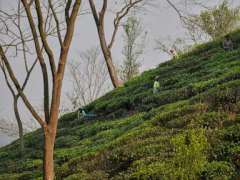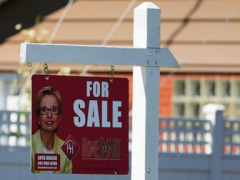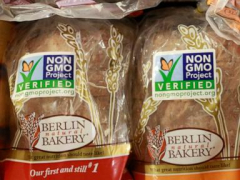NEW YORK — A tax on tea once sparked rebellion. This time, it’s just causing headaches.
Importers of the prized leaves have watched costs climb, orders stall and margins shrink under the weight of President Donald Trump’s tariffs. Now, even after Trump has given them a reprieve, tea traders say it won’t immediately undo the damage.
“It took a while to work its way through the system, these tariffs, and it will take a while for it to work its way out of the system,” says Bruce Richardson, a celebrated tea master, tea historian and purveyor of teas at his shop, Elmwood Inn Fine Teas, in Danville, Kentucky. “That tariffed tea is still working its way out of our warehouses.”
While a handful of bigger firms are behind the biggest supermarket brands, the premium tea market is largely the work of smaller businesses, from family farms to specialty importers to a web of little tea shops, tea rooms and tea cafes across the U.S. Amid an onslaught of tariffs, they have become showcases for the levies’ effects.
On their shelves, selection has narrowed, with some teas now missing because they’re no longer viable products to stock with steep levies on top. In their warehouses, managers are consumed with uncertainty and operational headaches, including calculating what a blend really costs, with ingredients from multiple countries on a roller coaster of tariffs. And in backrooms where the wafting scent of fresh tea permeates, owners have been forced to put off job postings, raises, advertising and other investments so they can have cash available to pay duties when their containers arrive at U.S. ports.
“If I were to add up all the money I’ve spent on tariffs that weren’t there a year ago, it could equal a new employee,” says Hartley Johnson, who owns the Mark T. Wendell Tea Company in Acton, Massachusetts.
Johnson’s prices used to stay static for a year or longer. He ate the tariff costs before being forced to respond. His most popular tea, a smoky Taiwanese one called Hu-Kwa, has steadily risen from $26 to $46 a pound.
He knows some customers are reconsidering.
“Where is that tipping point?” Johnson asks. “I’m kind of finding that tipping point is happening now.”
Though Trump backed off some tariffs on agricultural products last week, many in the tea trade are wary of celebrating too soon





